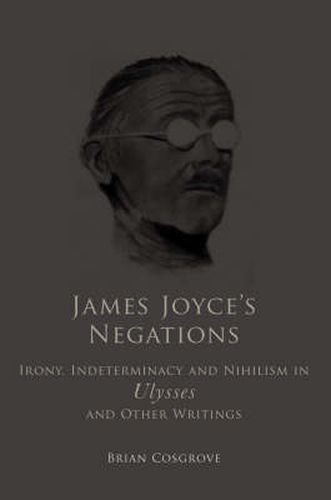Readings Newsletter
Become a Readings Member to make your shopping experience even easier.
Sign in or sign up for free!
You’re not far away from qualifying for FREE standard shipping within Australia
You’ve qualified for FREE standard shipping within Australia
The cart is loading…






The main purpose of this book is to validate a reading of Joyce in negative terms. Central to the enquiry is an examination of the roles of irony and of indeterminacy. Irony, interpreted in metaphysical rather than merely rhetorical terms, is envisaged as deriving from two separate if related orientations, one associated with Friedrich Schlegel, the other with Gustave Flaubert. Insofar as Joyce’s work (including Ulysses ) owes more to the latter than the former, it forgoes the genial humour central to Schlegel’s theories, and embraces instead the ironic detachment and formal control of a Flaubertian perspective. Such irony (which entails a suspicion of sentiment and a related dehumanisation of character, as in some of the stories in Dubliners) becomes normative in Joyce, and along with a similarly deflationary parody pervades Ulysses . In addition, a persistent indeterminacy is established as early as ‘The Dead’, so that it becomes impossible in that story to adjudicate between not just contradictory but mutually exclusive interpretations. Such indeterminacy is pushed to further extremes in Ulysses , with its notorious proliferation of narrative perspectives. As a corollary to the work’s encyclopaedic inclusiveness and quotidian particularism, every detail tends to assume the same significance as every other; the consequence being that (in Gyorgy Lukacs’ famous formulation) we lose all sense of any ‘hierarchy of meaning’. From that it is but a step to Franco Moretti’s assessment that in Ulysses everyday existence remains ‘inert, opaque - meaningless’, and that in fact the whole point is to represent the meaningless precisely ‘as meaningless’. Indeterminacy, in effect, ushers in the possibility of nihilism. The analysis of Ulysses culminates with the attempt (unavailing in both cases) to discover in either Bloom or Molly a genuine source of countervailing affirmation. The study concludes with a brief consideration of the polysemic vocabulary of Finnegans Wake as a logical extrapolation of the poetics of indeterminacy.
$9.00 standard shipping within Australia
FREE standard shipping within Australia for orders over $100.00
Express & International shipping calculated at checkout
The main purpose of this book is to validate a reading of Joyce in negative terms. Central to the enquiry is an examination of the roles of irony and of indeterminacy. Irony, interpreted in metaphysical rather than merely rhetorical terms, is envisaged as deriving from two separate if related orientations, one associated with Friedrich Schlegel, the other with Gustave Flaubert. Insofar as Joyce’s work (including Ulysses ) owes more to the latter than the former, it forgoes the genial humour central to Schlegel’s theories, and embraces instead the ironic detachment and formal control of a Flaubertian perspective. Such irony (which entails a suspicion of sentiment and a related dehumanisation of character, as in some of the stories in Dubliners) becomes normative in Joyce, and along with a similarly deflationary parody pervades Ulysses . In addition, a persistent indeterminacy is established as early as ‘The Dead’, so that it becomes impossible in that story to adjudicate between not just contradictory but mutually exclusive interpretations. Such indeterminacy is pushed to further extremes in Ulysses , with its notorious proliferation of narrative perspectives. As a corollary to the work’s encyclopaedic inclusiveness and quotidian particularism, every detail tends to assume the same significance as every other; the consequence being that (in Gyorgy Lukacs’ famous formulation) we lose all sense of any ‘hierarchy of meaning’. From that it is but a step to Franco Moretti’s assessment that in Ulysses everyday existence remains ‘inert, opaque - meaningless’, and that in fact the whole point is to represent the meaningless precisely ‘as meaningless’. Indeterminacy, in effect, ushers in the possibility of nihilism. The analysis of Ulysses culminates with the attempt (unavailing in both cases) to discover in either Bloom or Molly a genuine source of countervailing affirmation. The study concludes with a brief consideration of the polysemic vocabulary of Finnegans Wake as a logical extrapolation of the poetics of indeterminacy.